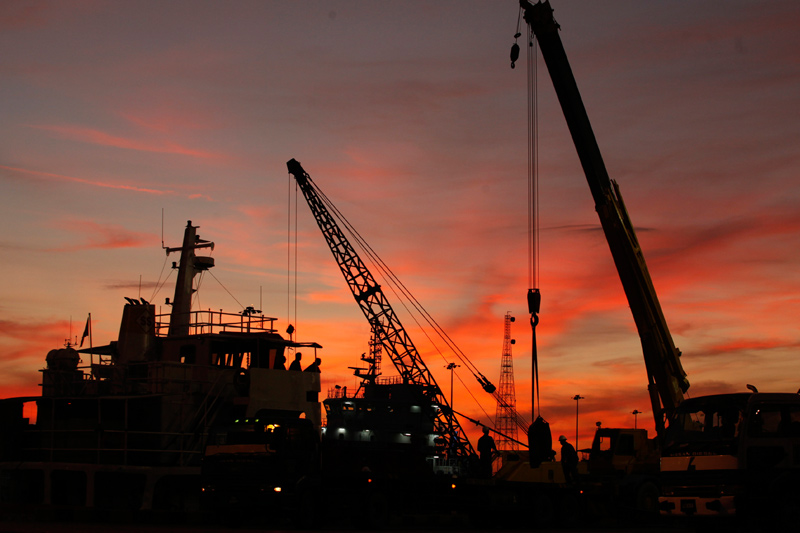By Feras Bosalum and Ulf Laessing
TRIPOLI (Reuters) - Libya's oil sector took another big step back to normality with the restarting of an oilfield that could double its current meager crude output, a week after blockades ended at major ports.
The 340,000 barrels per day El Sharara oilfield has resumed operations after protesters ended a four month strike, state-run National Oil Corp (NOC) said on Tuesday,
The field is in Libya's remote southwest and its connecting pipelines have been blocked several times since the autumn by protesters making financial and political demands, part of nationwide blockades of fields and oil ports.
Last week, eastern rebels handed over to the government the Ras Lanuf and Es Sider oil ports, ending an almost year-long occupation. Both terminals had accounted for 500,000 bpd.
Experts say, however, it will take time to restart production as fields and pipelines will require maintenance after standing idle so long.
Still, the restart of El Sharara and the two eastern ports give hope to the weak central government to restore vital oil production and revenue to help fight a worsening budget crisis.
Output was 327,000 bpd on Tuesday, NOC said, a fraction of the 1.4 million barrels a day the OPEC member used to pump last summer when the protests started.
"El Sharara will return to production after the pipelines were opened," said NOC spokesman Mohamed El Harari, adding that pumping had started at 1400 local time.
In May, NOC's production head Anwar Aghil said the field might take months to reach full output as at least 20 pumps inside wells need to be replaced. Operator Akakus, run by NOC and Spain's Repsol, might need up to six month to fix the pumps.
On Sunday, NOC lifted force majeure from the Ras Lanuf and Es Sider ports after rebels agreed to end a blockade. The waiver of contractual obligations was imposed last summer.
Disputes over Libya's oil resources have been among the many triggers for conflict between rival brigades of former rebels and allied political factions since civil war ended four decades of Muammar Gaddafi one-man rule in 2011.
The government and parliament in Tripoli are too weak to control heavily-armed militias which helped topple Gaddafi but now defy state authority and carve out small fiefdoms in the vast desert country.
Eastern port rebel leader Ibrahim Jathran had agreed in April to reopen two smaller eastern ports, Zueitina and Hariga, and then gradually free up Es Sider and Ras Lanuf.
After that deal, shipments from Zueitina were delayed because of damage from the blockade, while Hariga has seen only a few tanker loadings, hampered by a separate protest temporarily closing the port again.
(Reporting by Feras Bosalum; Writing by Ulf Laessing; Editing by William Hardy)
